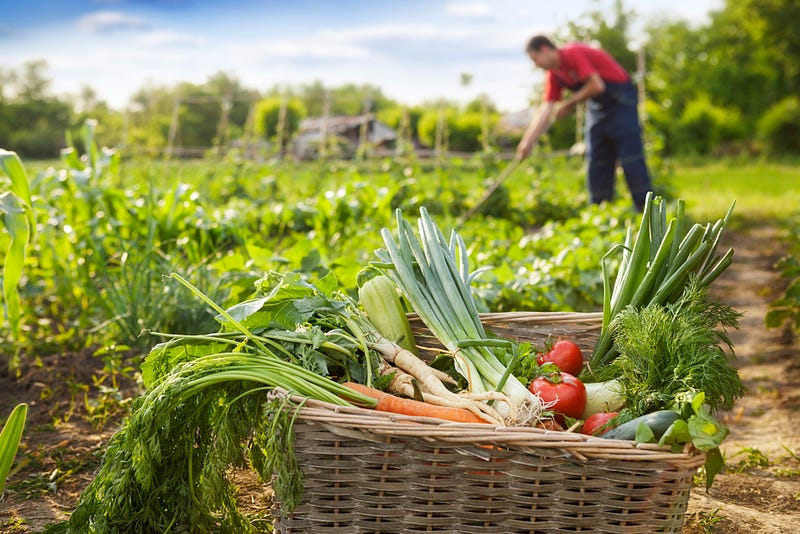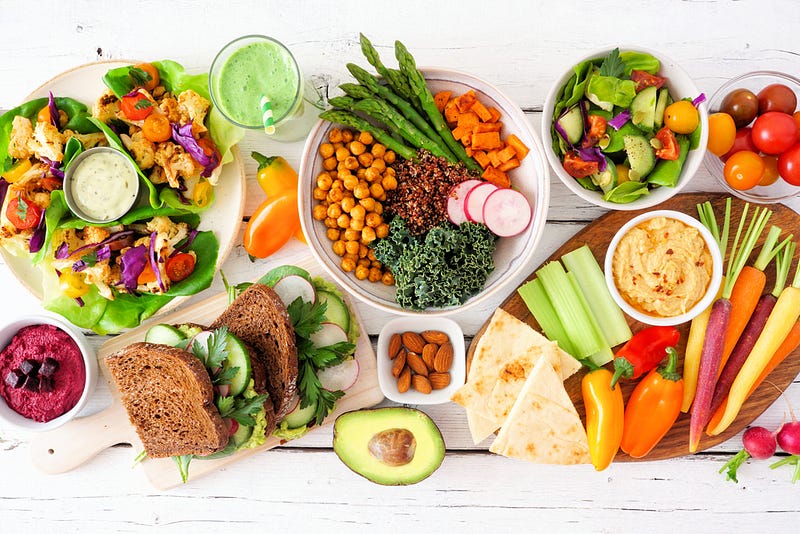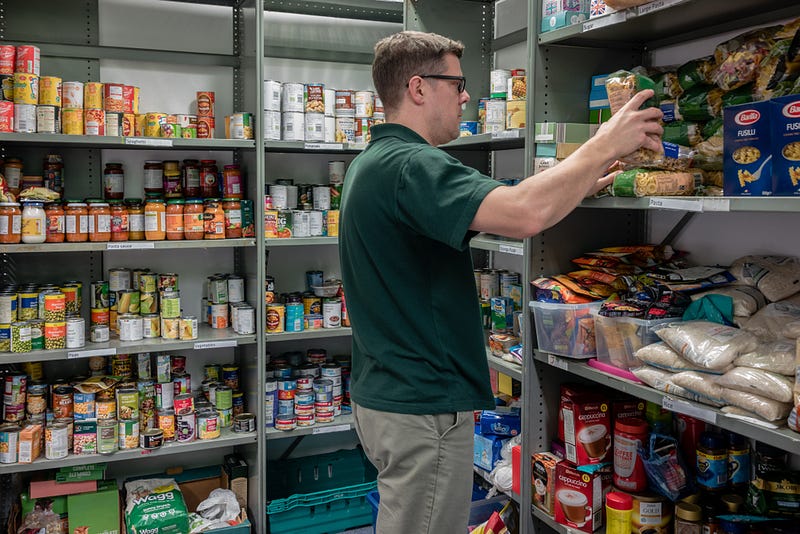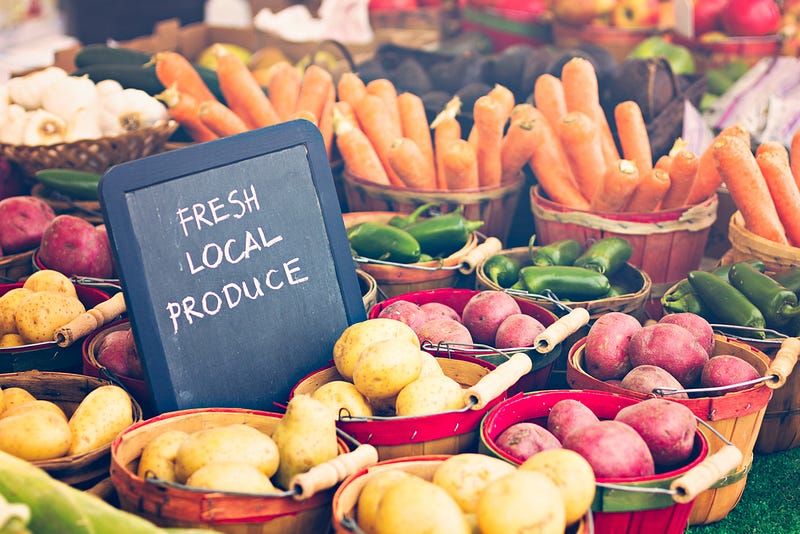Enhancing Food Production for a Sustainable Future
Written on

This article is based on the scientific work "World scientists’ warnings into action, local to global" by Phoebe Barnard et al. (Full citation and link are available at the end of the article).
The rise in hunger and malnutrition is alarming, with nutritional standards declining and the number of undernourished individuals increasing since 2014. Severe weather events, driven by climate change, have severely impacted crop yields, leading to reduced food availability. This issue is expected to worsen, especially in tropical and semi-arid regions.
Moreover, our current food production methods exacerbate climate change. The environmental repercussions include:
- Earth Overshoot Day: Food production significantly contributes to Earth Overshoot Day, which marks when we exhaust our annual resources. For instance, in 2022, this date fell on July 28.
- Greenhouse Gas Emissions: Agriculture is responsible for over 25% of global emissions.
- Water Depletion: Approximately 70% of fresh water is consumed by agriculture each year, leading to depleted water sources and affecting major rivers.
- Soil Degradation: Intensive farming practices threaten soil health, causing degradation and loss of arable land.
- Chemical Pollution: Excessive use of chemicals contaminates lakes, rivers, and aquifers, impacting ecosystems.
- Overfishing: Fish populations are rapidly declining due to overfishing.
These environmental challenges are anticipated to escalate as food production is projected to grow by 70% by 2050. Therefore, altering production methods is crucial to mitigate greenhouse gas emissions, conserve fresh water, and maintain soil health. Here are five strategies to enhance food production and protect our planet:
Decreasing Meat and Dairy Production
One effective method for improving food production is to lower the output of meat and dairy products. This approach is vital due to the significant environmental impacts associated with livestock farming, including:
- High greenhouse gas emissions, particularly methane from livestock.
- Extensive land and chemical use for animal feed.
- Substantial water consumption for growing animal feed, contributing to water scarcity.
To reduce meat and dairy production, we can:
- Limit our consumption of meat and dairy, opting for plant-based meals to shift demand.
- Develop meat alternatives, such as 3D-printed meat.
- Implement policies to restrict meat and dairy production.
- Encourage consumer choices for vegetarian or vegan meals in dining establishments.

Minimizing Food Waste
Another key strategy is reducing food waste, which directly correlates with the need for food production. Effective methods include:
- Utilizing technology to enhance food harvesting, storage, and processing, thereby minimizing waste. Online platforms can connect farmers with markets for excess produce.
- Collecting surplus food from restaurants and homes for redistribution to food banks.
- Improving portion control to avoid over-purchasing and waste.
- Composting inedible food to create natural fertilizers.
- Addressing spoilage caused by fungi, which accounts for 25% of global food loss.
- Repurposing food waste into bioplastics or utilizing fish waste for various products.

Relocalizing Food Supplies
Relocalizing food production means growing food locally, significantly cutting down transportation emissions, which account for 6% of greenhouse gas emissions from food. This method also enhances food security, ensuring communities can meet their basic nutritional needs without relying on imports.
Further Reading:
- How Urban Gardening Contributes to Sustainable Development Goals
- How Artificial Intelligence Can Be Used To Reach A Brighter Future (chapter SDG 2: Zero hunger)

Implementing Regenerative Agriculture
Regenerative agriculture integrates farming with ecological principles. Techniques like agro-silvopasture, where crops, livestock, and trees coexist, can enhance land efficiency and reduce chemical usage. This approach also helps rejuvenate degraded soil, which has lost its ability to store carbon due to conventional farming methods.
Further Reading:
- How Organic Farming Can Be Made Even More Environmentally Friendly
Enhancing Water Management
Improving water use is essential as 40% of irrigated crops use water unsustainably, leading to depletion of rivers and aquifers. Enhancements can be made through:
- Utilizing efficient irrigation methods like drip and sprinkler systems.
- Cultivating crops that are water-efficient, such as alfalfa.
- Recycling wastewater for irrigation purposes.
Further Reading:
- 2 Methods That Can Save Us When Freshwater Runs Out
- 14 Technologies That Can Prevent Wars Over Drinking Water

Conclusion
We can enhance food production and safeguard our planet by reducing meat and dairy consumption, minimizing food waste, relocalizing food supplies, adopting regenerative agriculture, and improving water usage.
Taking Action
Here are actionable steps you can take to improve food sustainability:
- Opt for plant-based alternatives more frequently.
- Purchase locally produced food.
- Buy only what you need to minimize waste.
- Support policies aimed at reducing food waste.
- Donate leftover food to food banks.
- Choose food nearing expiration that is still safe to consume.
- Be mindful of food storage to reduce spoilage.
- Get creative with leftovers, such as making croutons from stale bread.
Do you have additional suggestions for improving our food systems? Feel free to share your ideas in the comments!
Credit
This article is based on: Barnard, P., Moomaw, W. R., Fioramonti, L., Laurance, W. F., Mahmoud, M. I., O’Sullivan, J., … & Ziervogel, G. (2021). World scientists’ warnings into action, local to global. Science Progress, 104(4), 00368504211056290.